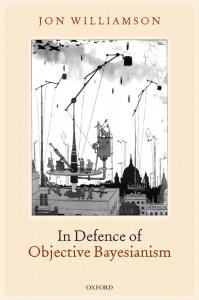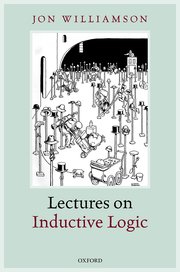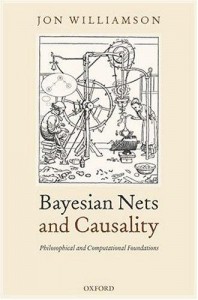I’m developing an account of objective Bayesianism. This is intended as a theory of rational degree of belief, rather than a theory of statistical inference.
The account is distinctive in that:
- It rejects the usual Bayesian identification of conditional degree of belief with conditional probability.
- It doesn’t presuppose that degrees of belief should be updated by Bayesian conditionalisation.
- It rejects a common objective Bayesian supposition that evidence uniquely determines a rational belief function.
- It takes objective chances to play a central role in determining rational degrees of belief.
The account is built on three kinds of norm:
- Structural. An agent’s belief function should be a probability function.
- Evidential. If the agent establishes from evidence that the chance function is in some set of probability functions, then her belief function should be in the convex hull of that set.
- Equivocation. The agent’s degrees of belief should otherwise be equivocal, adopting committal degrees of belief (near 0 or 1) only where they are forced by structural or evidential norms.
Motivation
 For some recent arguments for this sort of approach, see:
For some recent arguments for this sort of approach, see:
Jon Williamson: Bayesianism from a philosophical perspective and its application to medicine, International Journal of Biostatistics. ![]()
![]() doi: 10.1515/ijb-2022-0043
doi: 10.1515/ijb-2022-0043
Jon Williamson: A Bayesian account of establishing, British Journal for the Philosophy of Science 73(4):903-925, 2022.. ![]()
![]()
![]() . doi: 10.1086/714798
. doi: 10.1086/714798
Jon Williamson: Direct inference and probabilistic accounts of induction, Journal for General Philosophy of Science, 2022. ![]()
![]()
![]() . doi: 10.1007/s10838-021-09584-0
. doi: 10.1007/s10838-021-09584-0
For an introduction to the approach, see:
Jon Williamson: In defence of objective Bayesianism, Oxford University Press, 2010.
Objective Bayesian inductive logic
 I’m also interested in the use of objective Bayesianism to provide a new approach to inductive logic. I’m currently collaborating with Juergen Landes and Soroush Rafiee Rad on this.
I’m also interested in the use of objective Bayesianism to provide a new approach to inductive logic. I’m currently collaborating with Juergen Landes and Soroush Rafiee Rad on this.
Recent work includes:
Jon Williamson: Where do we stand on maximal entropy? In Logic for data, eds Hykel Hosni & Juergen Landes, Springer, 2024. ![]()
Juergen Landes, Soroush Rafiee Rad and Jon Williamson: Determining maximal entropy functions for objective Bayesian inductive logic, Journal of Philosophical Logic, ![]()
![]() doi: 10.1007/s10992-022-09680-6
doi: 10.1007/s10992-022-09680-6
Juergen Landes, Soroush Rafiee Rad and Jon Williamson: Towards the Entropy-Limit Conjecture, Annals of Pure and Applied Logic 172(2):102870, 2021. ![]()
![]() . doi: 10.1016/j.apal.2020.102870
. doi: 10.1016/j.apal.2020.102870
For an introduction to the approach, see:
Jon Williamson: Lectures on inductive logic, Oxford University Press, 2017. Errata.
Objective Bayesian nets
 Graphical models can be used to represent and reason with objective Bayesian probabilities.
Graphical models can be used to represent and reason with objective Bayesian probabilities.
Recent work includes:
Juergen Landes and Jon Williamson: Objective Bayesian nets for integrating consistent datasets, Journal of Artificial Intelligence Research 74: 393-458, 2022. ![]()
![]() . doi 10.1613/jair.1.13363
. doi 10.1613/jair.1.13363
For an introduction, see:
Rolf Haenni, Jan-Willem Romeijn, Gregory Wheeler & Jon Williamson: Probabilistic logics and probabilistic networks, Synthese Library, Springer, 2011.
Jon Williamson: Bayesian nets and causality: philosophical and computational foundations, Oxford University Press, 2005.